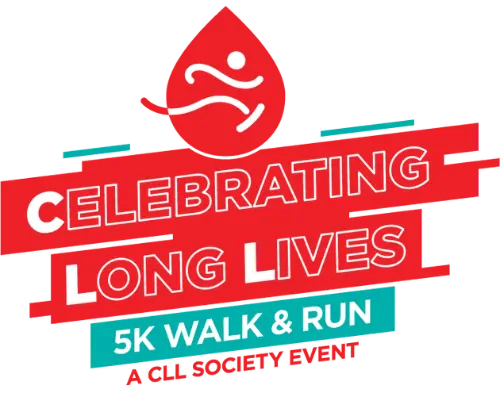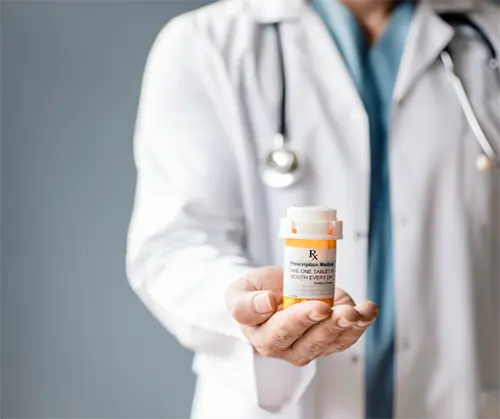CLL Society
WHAT’S NEW
Your connection to the most current news, information, and data about Chronic Lymphocytic Leukemia.
We suggest you BOOKMARK this page and visit it often. All content was current as of the date it was published.
In science and in medicine, information is constantly changing. Published content may become out-of-date as new information and data emerge.
COVID-19 Updates
What the CDC’s COVID-19 Isolation Change Means for CLL Patients
Chief Medical Officer Dr. Brian Koffman was asked how the CDC’s proposed recommendation to cut COVID-19 isolation time will impact those with CLL.
The CLL Nurses Note: Strategies for Reducing Infections During Holiday Gatherings
With the holidays fast approaching, those living with CLL / SLL especially need to remember ways to decrease the chance of catching one of the many viruses that are rapidly spreading this time of year.
NIH Home Test to Treat Program
Now there is a new trial (SUPERNOVA) of an updated mix of monoclonal antibodies that hopes to provide durable protection against present and future variants of concerns.
Living with CLL
If you are a veteran, active-duty military, or a care partner and would be interested in joining a CLL Society Support Group for veterans / active-duty military, please complete this brief survey to indicate your interest in participating and help us identify the best time for meeting.
CLL Advocate Network (CLLAN), a global network of CLL patient organizations including CLL Society, surveyed nonprofits around the world to understand what support services and resources are offered to individuals impacted by CLL / SLL. The information collected was used to build a global resource hub. Patients and care partners can access the resource hub for free on the CLLAN website.
Caring for the CLL and SLL Care Partner
CLL and SLL puts heavy physical, emotional, social, and financial strain on the care partner and not just on the patient.
Living Life to the Fullest 24 Years After a CLL Diagnosis
In the article A Leukemia Diary: 24 Years With CLL and Still Playing Golf published by Cancer Health, Terry talks about his 24 year journey in a unique chronological timeline
SPECIAL FEATURE: Join the Celebrating Long Lives 5K Walk & Run
Saturday, May 11, 2024
Virtual
 This is the last week to get a discount on your registration for Celebrating Long Lives! Early bird registration price ends on Sunday, March 31st. This is also the deadline to register by to receive your t-shirt before the event. Registration will remain open until event day, May 11, and you will get your t-shirt after the event.
This is the last week to get a discount on your registration for Celebrating Long Lives! Early bird registration price ends on Sunday, March 31st. This is also the deadline to register by to receive your t-shirt before the event. Registration will remain open until event day, May 11, and you will get your t-shirt after the event.
We hope you will gather with friends and family to join us for this fun virtual 5K to make a difference for the CLL and SLL community and raise critical funds for the mission of CLL Society.
First CAR-T Therapy Approved by FDA for Relapsed/Refractory CLL and SLL
 On Thursday, March 14th, lisocabtagene maraleucel (liso-cel) became the first CAR T-cell therapy to receive FDA approval in the US for the treatment of those with chronic lymphocytic leukemia or small lymphocytic lymphoma (CLL / SLL). Liso-cel (sold under the brand name Breyanzi) is approved for patients who have received at least two prior lines of therapy, including a BTK inhibitor and BCL-2 inhibitor. The approval of this CAR-T therapy gives an important treatment option and hope to those who have been through multiple courses of treatment.
On Thursday, March 14th, lisocabtagene maraleucel (liso-cel) became the first CAR T-cell therapy to receive FDA approval in the US for the treatment of those with chronic lymphocytic leukemia or small lymphocytic lymphoma (CLL / SLL). Liso-cel (sold under the brand name Breyanzi) is approved for patients who have received at least two prior lines of therapy, including a BTK inhibitor and BCL-2 inhibitor. The approval of this CAR-T therapy gives an important treatment option and hope to those who have been through multiple courses of treatment.
ADVOCACY AND POLICY
CLL Society Pushes for Patient Participation in New Medicare Drug Price Negotiation Program
CLL Society expects CLL patients will likely benefit from the new Medicare Prescription Payment Plan (MPPP), previously known as the “smoothing program.”
UPCOMING EVENTS
Thursday, May 16, 2024 at 8:30 AM PT / 11:30 AM ET
Join CLL Society for the webinar COVID-19 in 2024: Recommendations and Strategies for Those with CLL and SLL. Much has changed in the four years since COVID-19 was first identified. This includes the virus itself, the recommendations for preventing infection, treatments, reporting, and disease outcomes. While most people have gone about their daily lives not worrying about repeat COVID-19 infections, those who have compromised immune systems still need to be cautious and vigilant with infection control measures and continue to consider the risk.
Dr. Shahzad Mustafa will discuss the status of COVID-19 in the US and what it means for those who are immunocompromised. Additionally, prevention and post-infection isolation recommendations, strategies that can be used to help individuals to safely interact with their community, and an update on the status of pre-exposure prevention using monoclonal antibodies will be discussed.
Learn more and register here.
On-Demand Replay
If you missed the recent webinar with Dr. Onyema Okolo-Taku and patient advocate Stephen Brown, you can watch the full webinar, Navigating Integrative Medicine Approaches in CLL, and read the transcript here!
If you missed the recent webinar, Preventing COVID-19 and Other Respiratory Infections in Those with CLL / SLL During Peak Winter Months, you can catch the on-demand replay of here!
If you missed the recent Q&A-style Facebook Live Event, “Ask Me Anything” with Dr. Sameer Parikh and patient advocate Jeff Folloder, you can catch the on-demand replay of here!
Treatment Updates
Venetoclax Monotherapy for Relapsed / Refractory CLL
Venetoclax monotherapy is effective for treating relapsed / refractory CLL, including in patients previously treated with BTK or PI3K inhibitors.
Phase 1 Study of BTK Degrader BGB-16673 for B-Cell Cancers
Though it is still very early on, BTK degrader BGB-16673 appears tolerable. Clinical trials of BTK degraders may be especially of interest to CLL patients
Recruiting CLL Clinical Trial: ABBV-525, a MALT1 Inhibitor
A new clinical trial is recruiting patients with relapsed / refractory B-cell cancers to test the safety of a new experimental MALT1 inhibitor.
Equitable Access and Regulatory News
New COVID-19 Pre-Exposure Prophylaxis Option for CLL Patients
The US FDA authorized a new pre-exposure prophylaxis (PrEP) to prevent COVID-19 infection in those with CLL and other immune-compromising conditions.
















